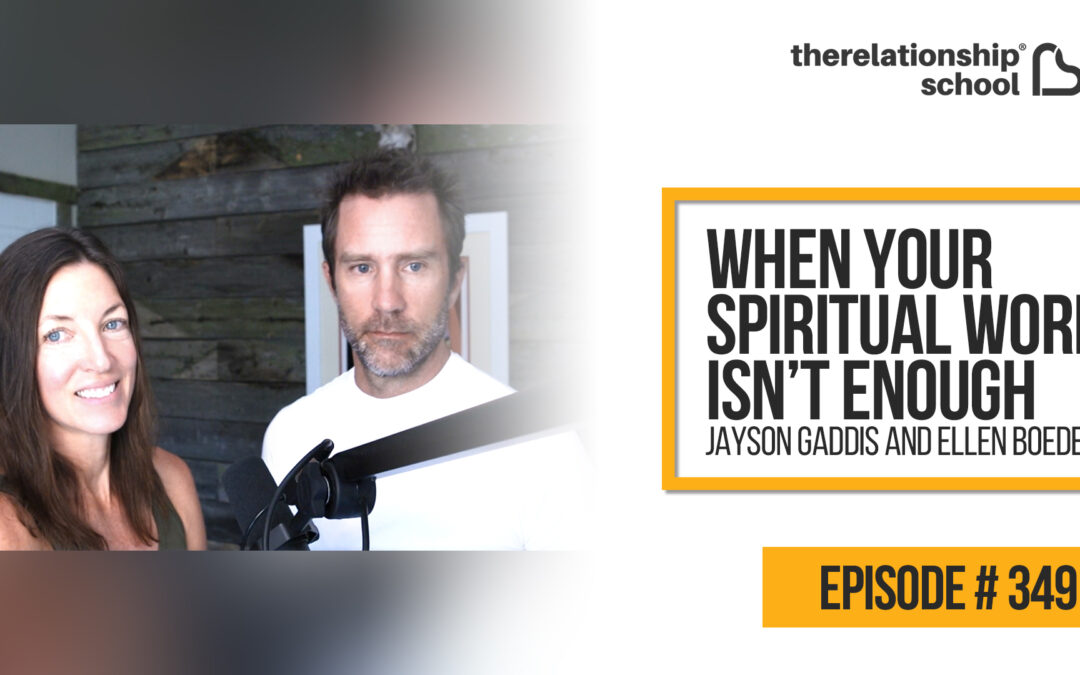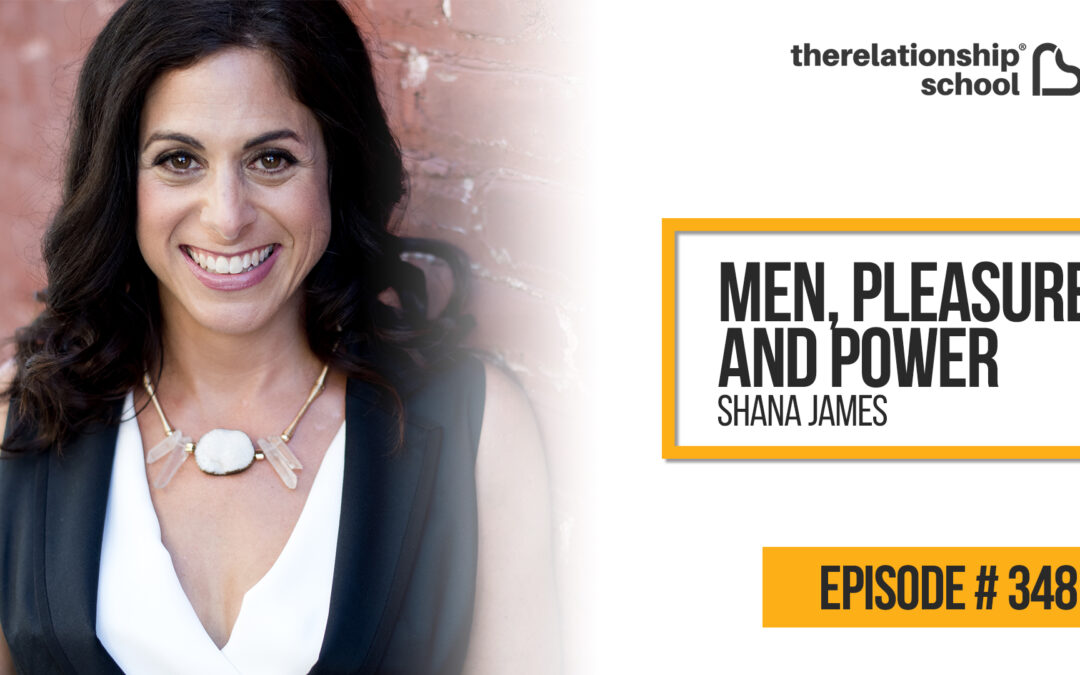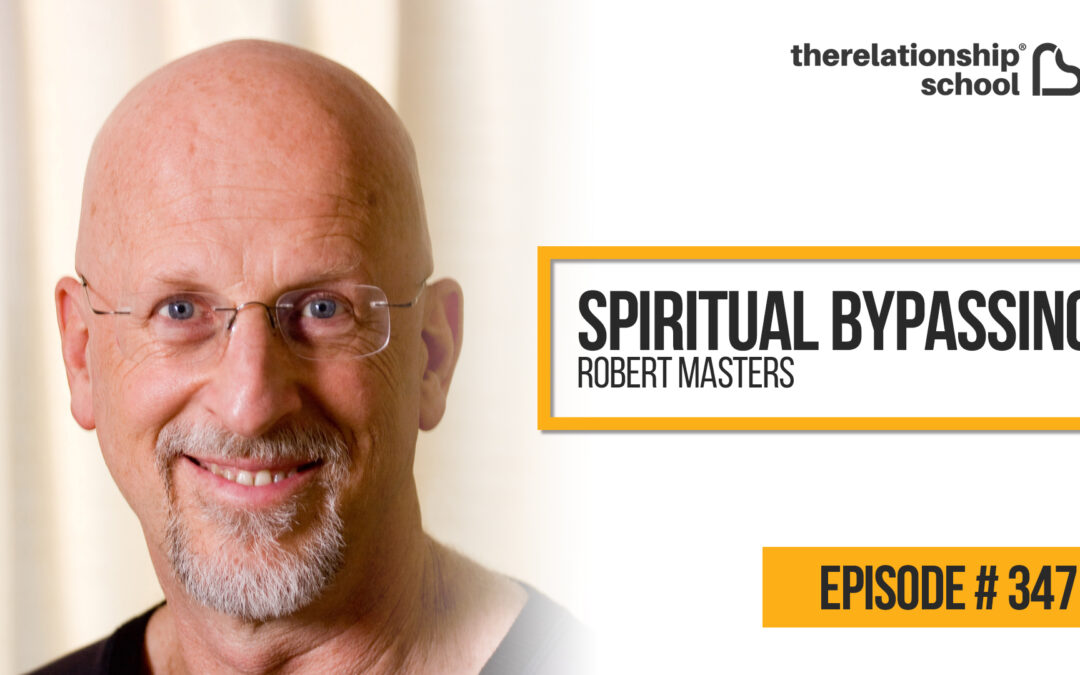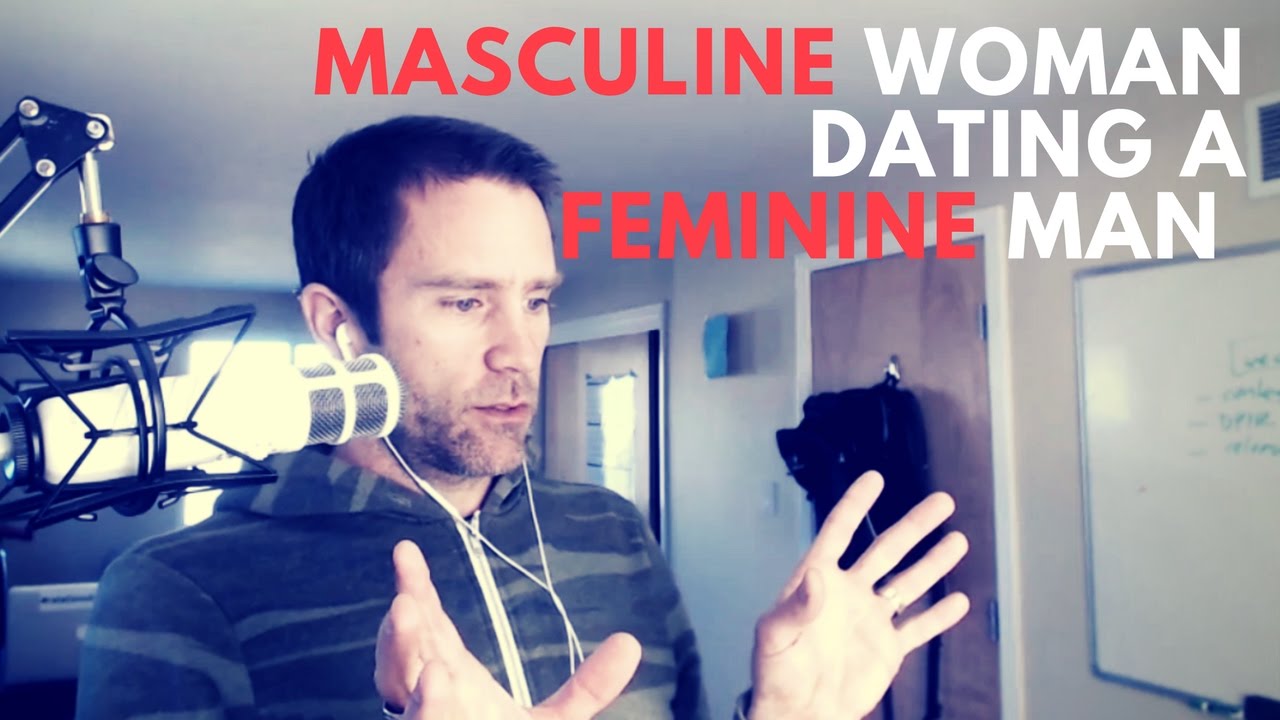When Your Spiritual Work Isn’t Enough – Jayson Gaddis and Ellen Boeder – 349
While I’m a firm believer that we are all deeply spiritual beings, we’re also humans—mammals—with emotional reactions.
We can work on our own mental and spiritual development, and that is a great thing. In fact, it’s something I highly recommend.
But—in a relationship, there are still going to be times those human reactions take over, and that’s normal. It’s not something we can ever shut off.
So how do we learn to integrate our personal spiritual growth into a relationship with another person—another human with their own emotions, reactions, and experiences—especially if we are at different stages of growth?
Trigger, Retreat, Repeat
It’s not necessarily an unhealthy thing to retreat when you’re triggered in a relationship. Let’s say you go off alone and meditate, self-reflect, and do what you need to do to calm yourself.
Maybe your partner does the same thing. Then, when you come back together, things feel better and the issue isn’t as prevalent anymore—or maybe it feels like it’s resolved.
The problem is, you may have dealt with the discomfort you felt and processed it individually, but you haven’t truly resolved the issue together as a partnership.
And so, you’ll probably find that issue coming up again, and this process will keep you stuck as a couple. It’s not sustainable long term.
It’s great to work on your spiritual growth and maturity, but how do you bring those together and mature as a unit, as a team?
Getting Stuck vs. Moving Forward
Part of spiritual growth is learning to be with your discomfort—recognizing it, accepting it, but teaching yourself that it’s not a problem. It’s pretty liberating once you reach that point of being okay with yourself and your human experience.
It’s important to do that in a relationship, too—to reach the point, together, of being uncomfortable and vulnerable but being okay with it.
That’s what will help your relational development and maturity as a couple, and it’s what will keep you from getting and staying stuck. Because if you don’t get to that point, you’ll only be able to go so far with that person and you’ll reach your relational ceiling.
We’re each going to have our own developmental gaps in our lives that have carried over from childhood or other adult relationships. But bringing your gaps together and being with them as a couple will give you the opportunity to fill them and to grow as a partnership. It may get somewhat complicated and uncomfortable, but you’ll soon find it’s freeing once gaps are filled and discomfort is accepted.
Relationships Are Difficult
The fact is, it’s a difficult thing learning how to be in a relationship with another human.
It takes a lot of capacity and practical experience, because it’s not inherent in us to be able to integrate all the aspects of another person into ourselves and our way of living. That’s especially true if we haven’t learned to be with and take responsibility for our own experience.
Besides, no one is immune to the need to work on themselves.
We all have areas we have disowned and experience developmental deficits. We each need to work on reclaiming what we’ve disowned and heal individually while collaborating for stronger development and maturity.
We’re Always Stronger Together
Relationships can be especially difficult when one person has done more work on themselves than the other. That person is probably pretty good at pointing out issues in their partner, and it can come across as superior, as though we’ve transcended the issue.
The partner typically does one of two things there: they either buy into it and feel they’re “not spiritual enough,” or they feel criticized and get defensive.
It’s important to remember that challenges are always vital to growth. When we collaborate, we build healthier, stronger relationships as we grow and mature together. We can become much deeper and more complex human beings through relationship growth than we can on our own.


















